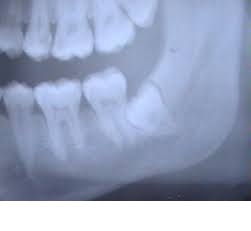 September begins “National Healthy Aging Month”. This is the time of year where we focus on the specific oral health concerns of some of our older patients. Just like the rest of our bodies, our mouths go through changes that can sometimes be challenging, but that can be overcome with renewed attention to dental hygiene and collaboration with our dental practitioners.
September begins “National Healthy Aging Month”. This is the time of year where we focus on the specific oral health concerns of some of our older patients. Just like the rest of our bodies, our mouths go through changes that can sometimes be challenging, but that can be overcome with renewed attention to dental hygiene and collaboration with our dental practitioners.
One of the biggest changes in older mouths is dryness of the mouth, also known as xerostomia. A dry mouth can be the result of a medical condition, most notably diabetes. Typically, dry mouth is an unintended consequence of taking medications for a variety of conditions: heart disease, diabetes, high blood pressure, certain allergies, and even Parkinson’s Disease.
Whatever the cause, a dry mouth invites disaster into our mouths. We may not think much about saliva, but a sufficient amount of saliva is needed for a healthy mouth. Dry mouth is a symptom of insufficient saliva.
Why is saliva so critical? Saliva coats the teeth and mouth. When it is not there in abundance, the teeth are not bathed and rinsed regularly, and bacteria and food particles “hang out” for too long in the mouth. This brings on a whole host of complications: halitosis (bad breath), cavities and even worse, issues with our gums and more serious infections.
Signs of dry mouth are pretty easy to spot: they can include bad breath (especially when others tell us that our breath smells or offer us breath mints), increased thirst, and dry or cracked lips.
How can dry mouth be treated?
Obviously, you can’t quit taking medications that contribute to dry mouth. But you can do the following to combat dry mouth:
- Be sure you are getting regular dental care, scheduling cleanings for every six months at a minimum. If your plaque buildup is significant between cleanings, this interval may need to be decreased.
- Talk to your physicians and your dentist about the combinations of medications you are taking and the side effects that are occurring. It is possible to tweak your drugs so that the xerostomia is lessened.
- Increase the amount of water you drink, so that you actually feel a moist mouth.
- Add a third teeth brushing mid-day, so that you are getting rid of bacteria and food particles and not allowing them to settle on your teeth and gums.
- Consider using an oral rinse, but only if it does not contain alcohol, which can dehydrate a mouth.
- If it helps you, you can suck on sugarless candies or chew sugarless gum.






